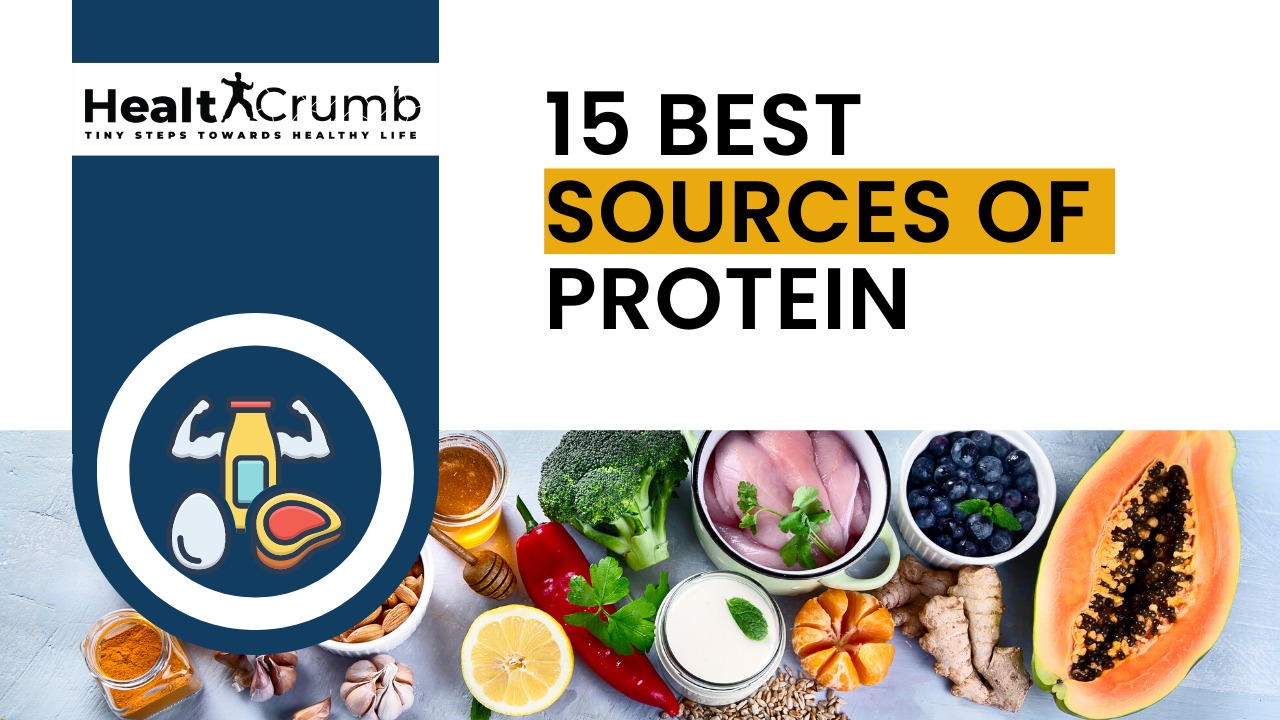For an individual to get a balanced diet, it requires all the constituents such as protein, vitamins, minerals, carbohydrates, fats, etc. But are you consuming or having enough of them? Are you aware of protein-rich foods which can be vegetables or fruits or any high-protein foods?
Everyone aims to consume protein-rich food and try to make a diet plan, but few of them are only well versed with the fact that it can be beneficial to their health. There are different varieties of protein-rich foods depending upon the classification as vegetarian or non-vegetarian.
So in this article, we will look at all the possible knowledge regarding proteins and the sources through which one can get maximum protein.
Protein
Protein is a nutrient that the body needs to grow and in repairing the cells to work properly. It is widely found in several categories of food items, and it is significant that you get enough protein in your diet daily. The requirement of protein needed from the diet varies depending on weight, gender, age, and health.
Protein is also beneficial in the growth of muscle, supporting the health of bone to improve metabolism which thus helps in repairing of the tissue and can even reduce blood pressure and fat accumulated in the belly.

Proteins contain amino acids that are building blocks. There are around 20 different amino acids that relate together in different combinations. It is a vital micronutrient which is essential to life that your body needs for proper growth and maintenance.
A high-protein diet allows more consumption of protein and fewer carbohydrates and fats, which accelerates weight loss, increases energy, and improves athletic performance. Some studies suggest that a high-protein diet may help overweight and obese women lose fat while maintaining lean muscle mass.
A high-protein diet can help reduce hunger, increase satiety, increase your metabolic rate and maintain muscle mass. However, when it comes to a high-protein diet, one plan does not work for everyone because what may work well for one may not necessarily work for others.
Is it a healthy choice to start having a high-protein diet?
A high-protein diet includes vegetables, fruits, whole grains, lean meats, beans and legumes, nuts, seeds, dairy products, and wholesome oils for good health. Many experts recommend a low-calorie but high-protein diet for weight loss.
As for healthy adults, the recommended dietary allowance (RDA) for protein is 0.8 grams per kilogram of body weight per day, which means the consumption must be at least 1 gram of protein per kilogram of body weight per day.
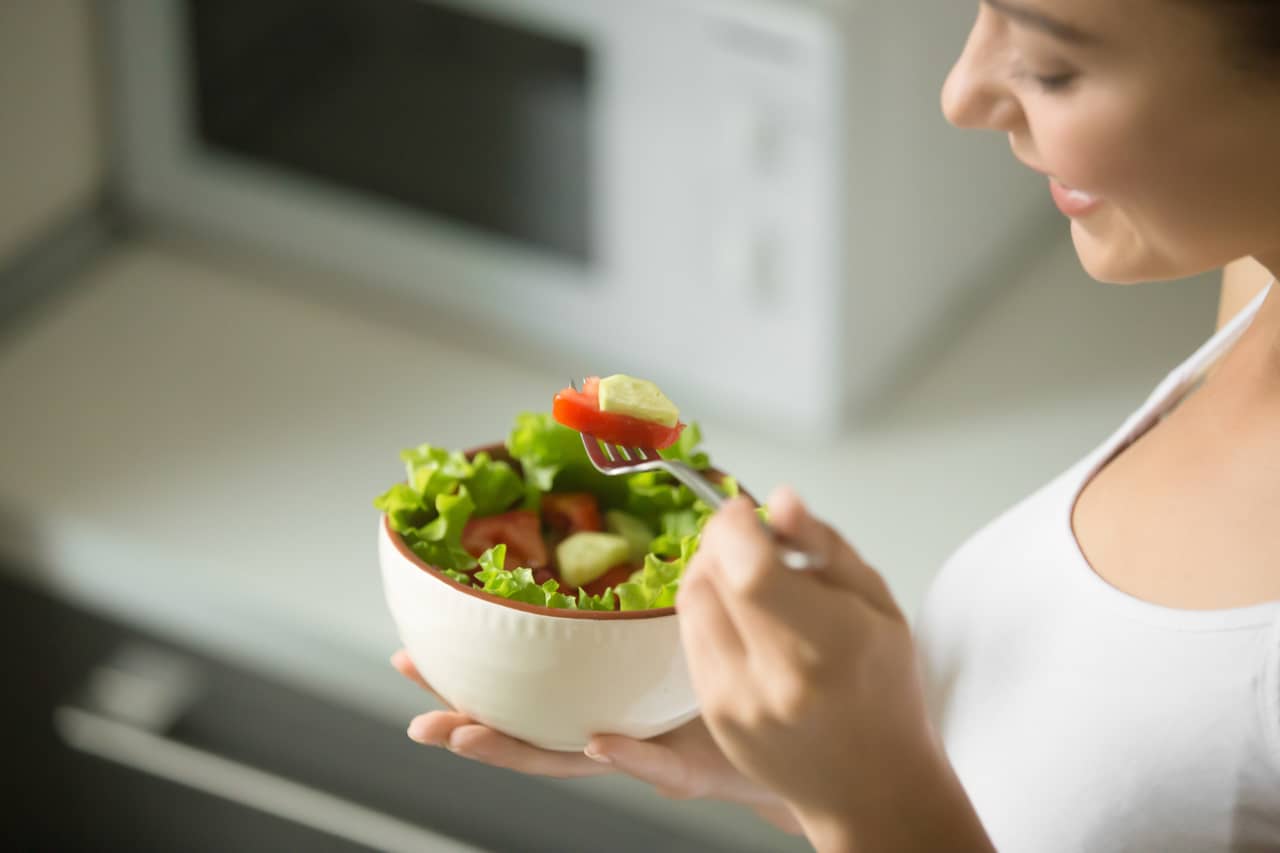
Many of us wonder how vegetarians get their protein, isn’t it the difficult task to gather protein-rich foods. The most important worry which all vegans and vegetarians may have is how to get their protein when they aren’t consuming traditional sources of protein.
These vegetarian protein sources can make it easy to get the required protein if you are not consuming meat and only eating vegetarian food, which also counts for plant-based food and not animal-based. If an individual is having a routine of consuming a vegetarian diet, then try these meatless and plant-based options to increase the source of protein.
Have a glance at some of these protein vegetarian foods which you can add to the high-protein diet.
Greek Yogurt
Greek yogurt is a protein source which can be added to smoothies or layered with fruit and granola, also used as a substitute to sour cream for a variety of food items such as tacos or dips. It also delivers calcium and probiotics that make the gut healthy.
Chia seeds
These seeds are constituted with protein, fiber, and omega 3s. It can be blended into smoothies, also try chia seeds jam on the toast.
Lentils
Fiber is the essential component that the body needs, Lentils are a powerhouse and source of proteins. Not only do they deliver vegan protein, but half a cup of lentils which is cooked well can give you around 8 grams.
Quinoa
Quinoa is a differentiating protein food among all plant-based proteins because it has all the necessary amino acids, which makes it a complete protein. Being rich in magnesium, phosphorus, manganese, zinc, iron, thiamine and folic acid it gives a benefit for individuals having celiac disease or gluten sensitivity, quinoa is gluten-free.
Hemp seeds
Hemp seeds have high levels of omega-3 fatty acids and can be used as a sprinkler on smoothies or oatmeal.
Cottage cheese
Cottage cheese has a higher level of sodium, which can be used as a sauce or as a sweetener with fruit.
Beans
Beans are also a good source of protein and are plant-based iron. They can be added through the source of food items such as dips, tacos, salads, and soups.
Green peas
They can be added to soups or any salads. Many of us don’t believe that green peas are a source of protein, but they are.
Pistacchio
They are also a complete source of protein like any other seeds. Intake of pistacchio daily can provide 12 grams of protein. Eat it like a snack or combine it with butter.
Chickpeas
They can be made into fine powder and used in pasta too. It is one, the finest sources of protein in terms of vegetarian foods.
Protein-Rich Foods
Our body which is built up with skin, organs, hormones, and muscles is also made of proteins. Protein is considered as a helper in losing weight but not by staying on a few food items but with all what you can eat within the category by keeping the stomach loaded.
If you are a fitness freak or an ordinary working person or a child, all that is needed is the appropriate proportion of protein to the body to keep it functioning.
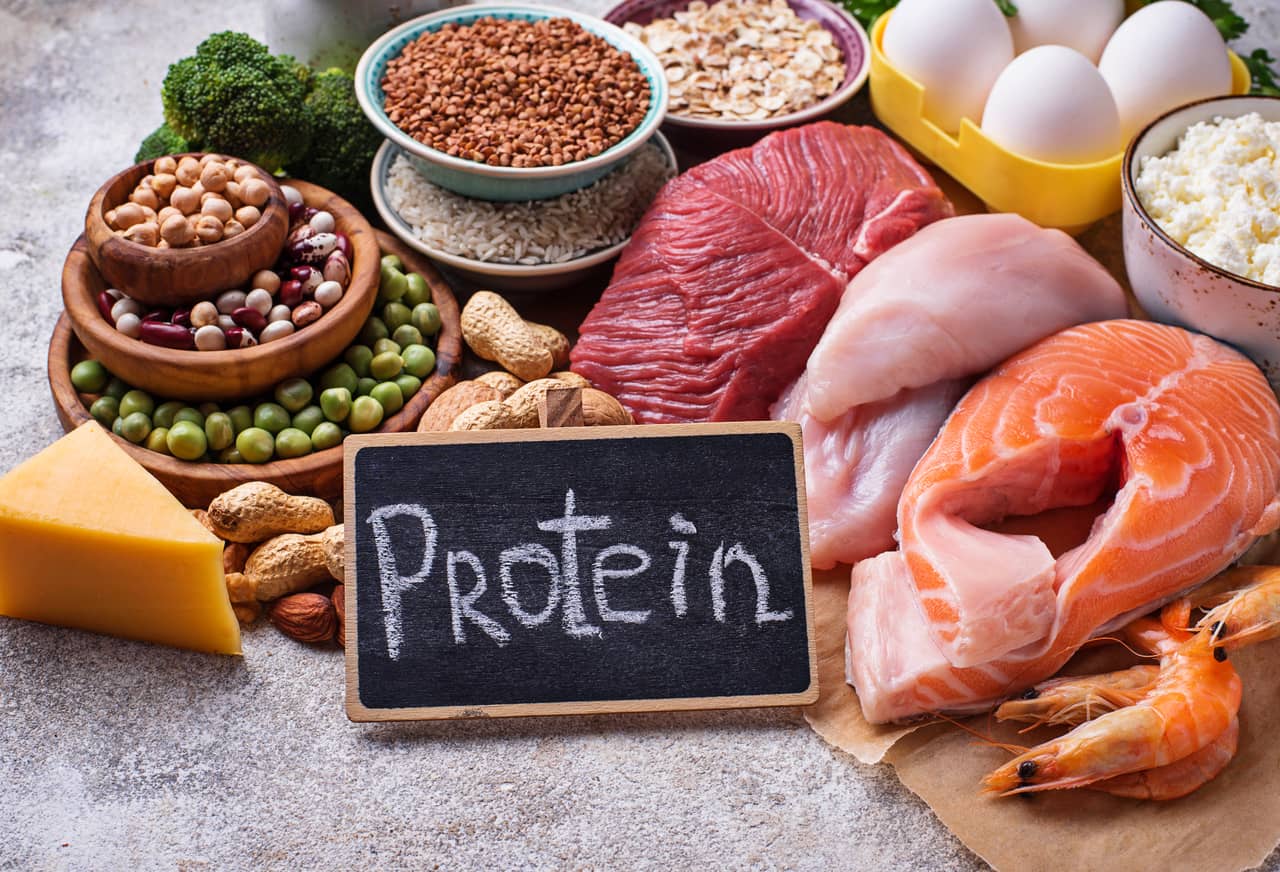
We have placed some popular veggies and fruits which you can add to your protein-rich food list. So, It is not of concern that you are a vegetarian or an omnivore but want to have a balanced diet without having animal-based protein food items.
Here is the list of protein-rich foods and vegetables which can work well for everyone trying to gather high protein.
Also Read: 15 Ways to Maintain Weight after Weight Loss
Protein-rich fruits
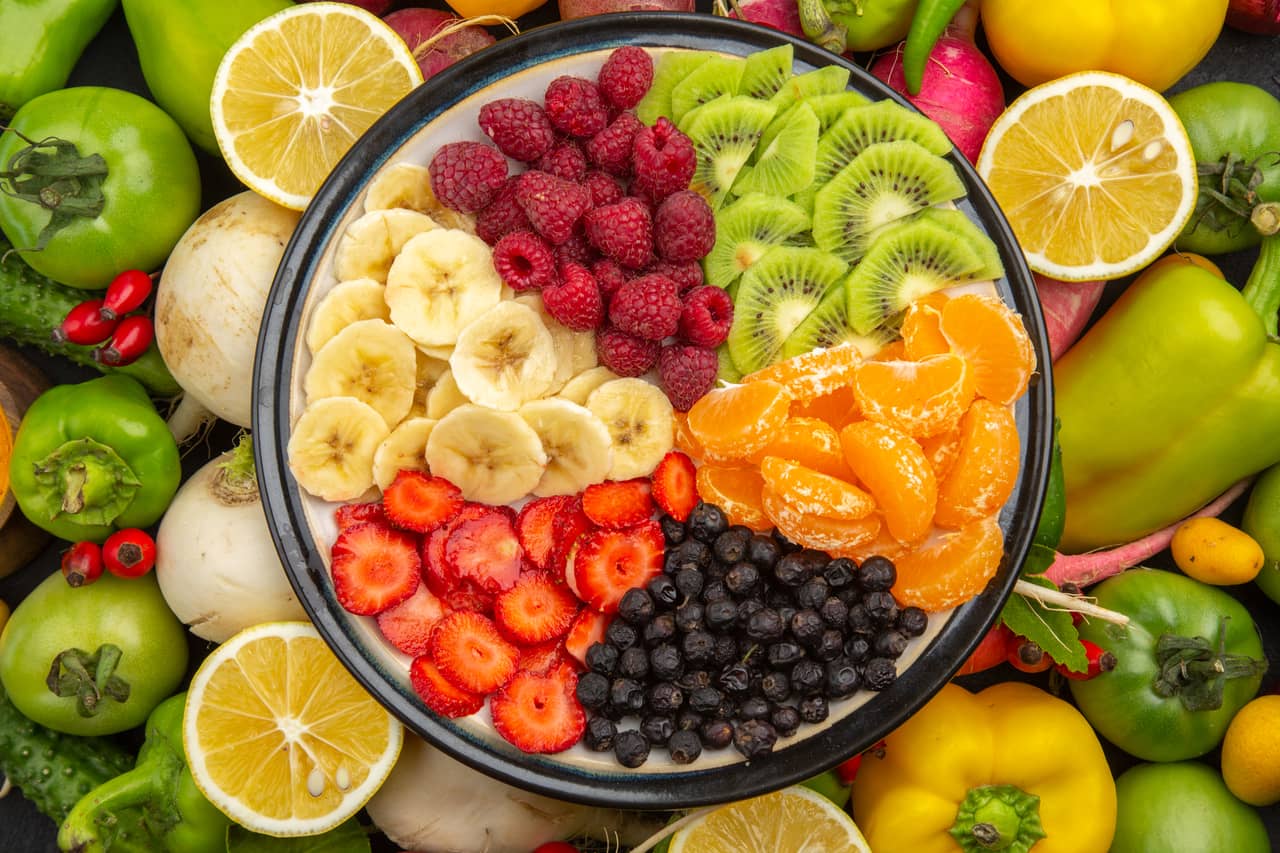 Guava- 4 grams protein
Guava- 4 grams protein
Jackfruit- 3 grams protein
Apricot- 2 grams protein
Avocado- 3 grams protein
Kiwis- 2 grams protein
Banana- 1.6 grams protein
Blackberries- 2 grams protein
Raisins- 1 gram protein
Cherries- 1.6 grams protein
Grapefruit- 1.3 grams protein
Protein-rich vegetables
Carrot
Red bell pepper
Eggplant
Kale
Zucchini
Garlic
Mushrooms
Broccoli
Brussels sprouts
Sweet potato
Asparagus
Spinach
Collard greens
Russet potato
Green peas
Some of the protein foods which non-vegetarians can opt for
Steak
Lamb
Chicken
Egg
Shrimp
Lobster
Scallops
Tuna
Protein shakes, powders, and supplements
Protein powder or shakes are considered as a dietary supplement which is extracted from animal and plant foods. The common forms of the protein supplement are whey, soy, and casein protein.
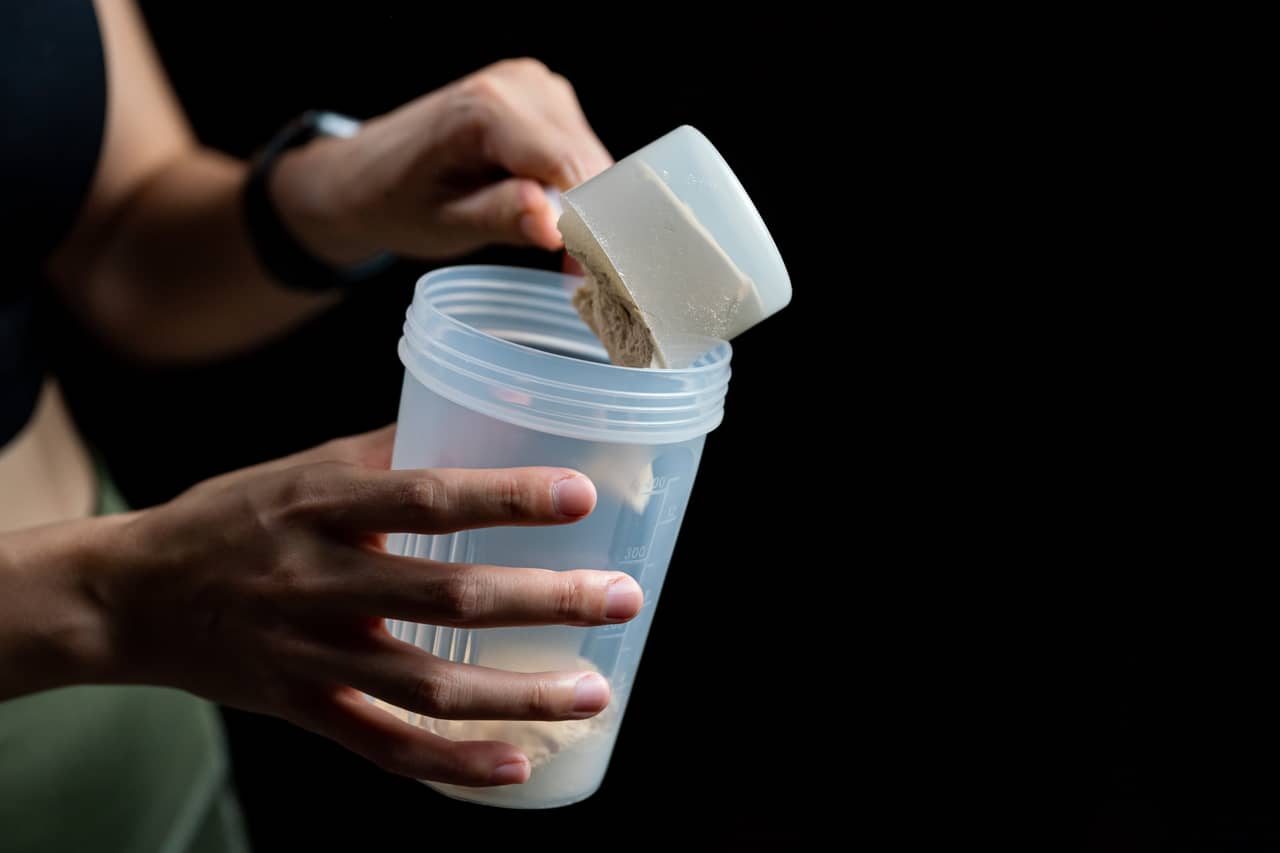
The protein powder is largely preferred by the one who works out in gyms and athletes, many are also dependent on protein shakes for the requirement of protein or to increase the weight. There is no such rule that protein powder is helpful for daily protein requirements, but one can also consume protein-rich foods which may benefit.
Benefits of food with protein:
- It helps in strengthening the immune system and maintains health
- Keeps the bones strong
- Helps in losing weight
- Boost the mass of muscle by increasing the strength
- Aids in health of the heart and lowers blood pressure
- Helps in repairing of the body by promoting cells and tissue recovery
- Supports digestion of food and helps in forming new cells
- Regulation of hormones during the transformation and development of cell
To conclude
Protein Sources can be gained by many food items, which may be through fruits or vegetables, pulses or nuts. Vegetarians and non-vegetarians also have a wide range of options to choose from.
Without cutting off any food items during the weight loss regime, one can have a proper meal with these given classified lists. So start today and make your body a powerhouse of protein.
Further Reading:

